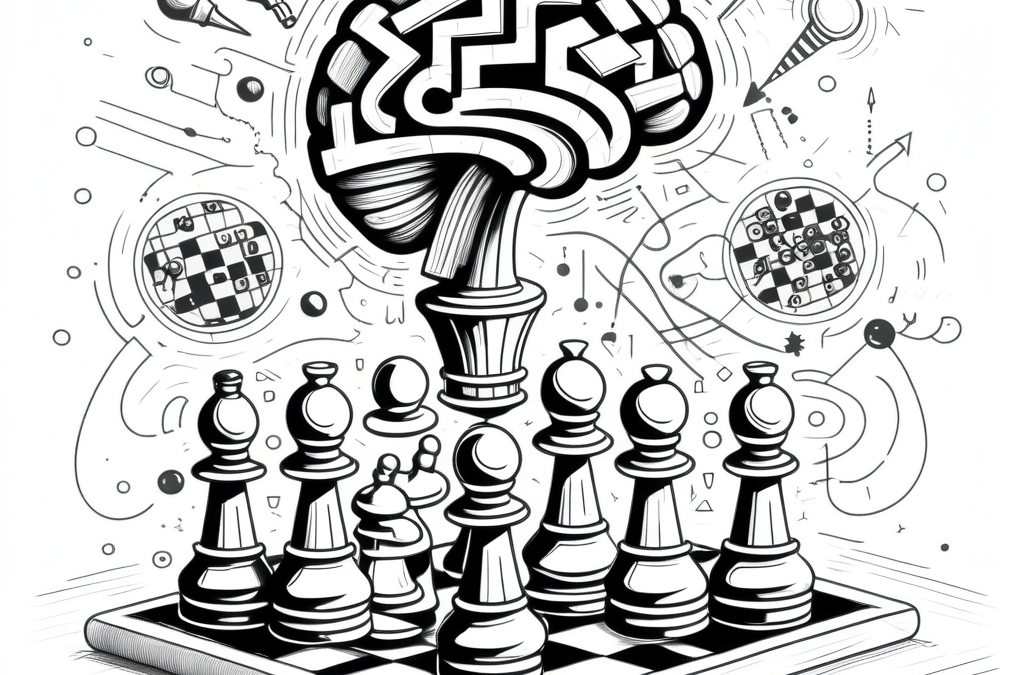The Strategic Connection: Game Theory and Artificial Intelligence
Imagine a world where machines can outsmart humans in complex games, make strategic decisions, and even drive cars. Welcome to the fascinating realm of game theory and artificial intelligence (AI). In this article, we’ll explore the surprising connection between game theory and AI, and how this synergy is driving innovation in fields like robotics, healthcare, and finance.
The Science of Strategic Decision-Making: Understanding Game Theory
Game theory is the study of strategic interactions between players, where each player’s decision impacts the outcomes for others. It consists of three key elements:
- Players: The decision-makers in the game, which can be humans or AI agents.
- Strategies: The choices available to players for achieving the best outcomes.
- Payoffs: The rewards or outcomes resulting from players’ decisions.
Types of Games
- Cooperative Games: Players form alliances to achieve a common goal.
- Non-Cooperative Games: Players compete against each other, leading to competition.
To make it relatable, consider a negotiation with friends about which movie to watch. Each person has their own preferences, and the outcome depends on the collective decisions made. Game theory helps us understand these interactions, from economics to sports and beyond.
Unlocking AI: A Beginner’s Guide to Artificial Intelligence
Artificial Intelligence is about creating systems that can perform tasks that usually require human intelligence. There are two main types of AI:
- Narrow AI (Weak AI): Designed for specific tasks, like virtual assistants (Siri, Alexa) and recommendation systems.
- General AI (Strong AI): Aims to replicate human cognitive abilities, allowing machines to perform any intellectual task.
Key Techniques in AI
- Algorithms: Foundations of AI that process data and learn from it.
- Machine Learning: A subset of AI where systems improve their performance over time by recognizing patterns in data.
Understanding AI is crucial, as it heavily relies on game theory to make strategic decisions, like in games such as chess and Go, where AI can outplay human champions.
Game Theory in Action: Enhancing AI Decision-Making
Game theory is vital in developing AI systems that can outsmart humans and adapt to complex situations. Here’s how game theory enhances AI:
- Multi-Agent Systems: AI agents interact and respond to each other’s behaviors. Game theory models help predict these interactions for effective collaboration or competition.
- Real-World Applications: AI can use game theory to optimize traffic management by analyzing driver behaviors to improve flow and reduce congestion.
Moreover, game theory also addresses ethical considerations in AI, ensuring systems make fair and responsible decisions that consider societal impacts.
Strategic Advantage: How Game Theory Impacts AI Decision-Making
In high-stakes environments, AI faces the challenge of making informed decisions based on the actions of multiple players. Game theory enables AI to:
- Predict Actions: Anticipate other players’ moves, essential in competitive settings like chess or self-driving cars.
- Model Outcomes: Use predictive modeling to make decisions that maximize success chances, adapting strategies as situations evolve.
AI algorithms, particularly those utilizing reinforcement learning, benefit significantly from game-theoretic principles. This iterative learning process mirrors how humans adapt in competitive scenarios, allowing AI to balance cooperation and competition effectively.
Optimizing AI: The Role of Game Theory in Algorithm Development
By applying game theory principles, researchers can enhance AI decision-making capabilities:
- Reinforcement Learning: AI learns strategies through trial and error, refining its performance over time.
- Nash Equilibrium: AI can develop optimal strategies in competitive environments where players cannot benefit from changing their strategies unilaterally.
Future Directions
The fusion of game theory and AI is evolving rapidly. Emerging techniques will refine AI algorithms, driving innovation in various sectors, including resource allocation and market design.
Game Theory 101: Essential Concepts for AI Enthusiasts
For aspiring tech enthusiasts, understanding game theory is foundational. Here are some essential concepts:
- Cooperation vs. Competition: Recognizing when to work together or compete can lead to better outcomes.
- Simulating Games: Engage with friends by creating simple negotiation games or strategy competitions to practice decision-making skills.
Online resources, interactive websites, and videos can also provide valuable insights into game theory applications in AI.
The Future of AI: Harnessing the Power of Game Theory
In conclusion, the connection between game theory and AI is a powerful synergy that’s driving innovation across various industries. As AI continues to evolve, understanding the role of game theory in shaping AI decision-making is crucial for developing more intelligent and autonomous systems. The intersection of these fields offers immense potential for young minds eager to explore and innovate.
As we look to the future, how will you harness the power of game theory to drive innovation in AI? The next breakthrough is just around the corner, waiting for the next generation of thinkers and creators.


